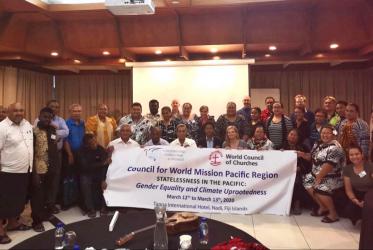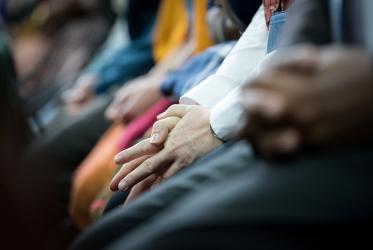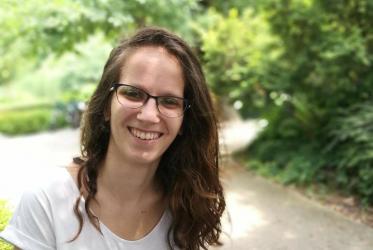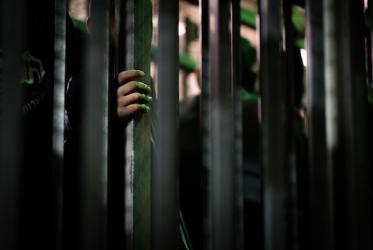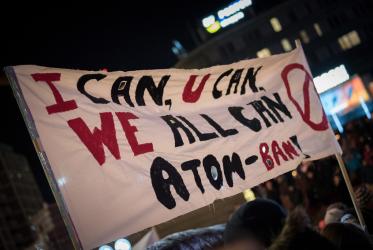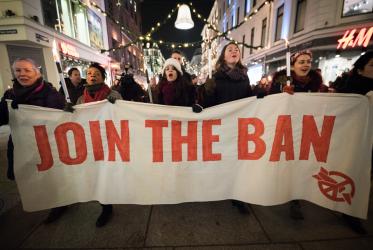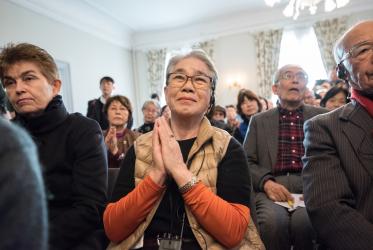Displaying 41 - 60 of 150
Churches should use their voice on climate change
26 February 2020
On International Human Rights Day, WCC’s work is ever-present
10 December 2019
WCC pressing ahead with disarmament work
28 August 2019
Religions for Peace calls for "shared well-being”
26 August 2019
WCC celebrates life of Archbishop John Habgood
18 March 2019
WCC statement welcomes hopeful turn in Korea
20 June 2018
Ecumenical group demands for Germany to support nuclear prohibition
22 February 2018
Bishop Helga - diaconal apostle
22 December 2017
Trying to do good for the world
18 December 2017
Nobel winners plan next steps for banning nuclear weapons
10 December 2017

